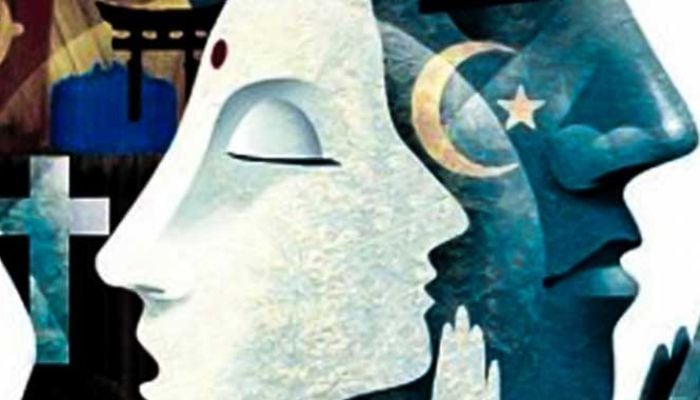Recognising services of Pakistan’s minorities
A ‘minority convention’ was also held in the National Assembly hall yesterday (August 11) to commemorate National Minority Day
August 12, 2022

On August 14, the entire nation will celebrate the diamond jubilee (75th anniversary) of the creation of Pakistan. Under the direction of Speaker National Assembly Raja Pervez Ashraf, four-day diamond jubilee celebrations have already started at Parliament House on the completion of 75 years of the first constituent assembly of Pakistan.
Besides other activities, a ‘minority convention’ was also held in the National Assembly hall yesterday (August 11) to commemorate National Minority Day. On this occasion, I want to take the opportunity to pay tribute to contributions of the minority community towards national development.
In the parliamentary history of Pakistan, August 11, 1947 has a unique status. It is a historic day when the first session of the Constituent Assembly of Pakistan was held. Quaid-e-Azam Muhammad Ali Jinnah, after being elected the first president of the Constituent Assembly, delivered his famous speech which won the hearts of the non-Muslim minority community across the country.
Quaid-e-Azam, who was also known as the ambassador of Hindu-Muslim unity, assured that every citizen in Pakistan would have equal civic rights without any discrimination. According to him, all citizens would be allowed to go to temples, mosques or any other place of worship to perform their religious duties.
Responding to the call of Quaid-e-Azam, thousands of Hindu families gave up their intention to migrate and declared Pakistan their ‘dharti mata’ (motherland). On this occasion, Quaid-e-Azam expressed his full confidence in the leader of the Hindu community, Jogandranath Mandal.
According to historical facts, Hindu and non-Muslim participants of the Constituent Assembly session held in Karachi on August 11 included Jogandranath Mandal, Prem Hari Barma, Raj Kumar Chakraverty, Sris Chandra Chattopadhyaya, Akhay Kumar Das, Dhirendra Nath Datta, Bhupendra Kumar Datta, Jnanendra Chandra Majumdar, Birat Chandra Mandal, Sri Dhananjoy, Maudi Bhakesh Chanda, Harendra Kumar Sur, Kawivi Kerwar Datta, Ghulam Mohammed, and Ganga Saran.
Similarly, a large number of Christians living in the Subcontinent were also in favour of Quaid-e-Azam’s demand for Pakistan. At the time of Partition, the Christian speaker of the United Punjab Assembly, SP Singha, cast his decisive vote in favour of Pakistan. Sir Victor Turner, who served as the first finance secretary of Pakistan and chairman of the then Central Board of Revenue, was one of the central Christian leaders in the Pakistan Movement. Pakistan’s first official rupee currency note had also carried his signature, V A C Turner.
Alvin Robert Cornelius, another notable Christian figure in the Pakistan Movement, was a jurist, legal philosopher and judge. He served as the law secretary for the then law minister, Jogandranath Mandal. Quaid-e-Azam had elevated him as chief justice of the Lahore High Court bench. He is acknowledged as a symbol of how the rights of minority communities should be protected and how the communities should be given religious freedom.
After independence, when a large number of people moved to the then capital city of Karachi, the mayor who warmly welcomed them was Jamshed Mehta, a member of the Parsi community. It is quite unfortunate that today our new generation does not even know the names of our great heroes who dedicated their lives for Pakistan.
In my view, the major fault in this is our own. We certainly want to provide our children modern education to advance in life but are not interested in making them aware of our glorious past. Keeping this in view, the Pakistan Hindu Council (PHC) has announced the annual PHC awards to recognize the outstanding contributions of the patriotic minority community across the country. It also aims to highlight historical characters associated with our bright past.
It has always been my stance that the PPP is at the forefront of protecting the rights of non-Muslim minorities. Even today I would like to pay tribute to the speaker of the National Assembly, a PPP leader, who considered it necessary to recognize the services of non-Muslim minorities while celebrating the diamond jubilee of the assembly.
The writer is a member of the National Assembly and patron-in-chief of the Pakistan Hindu Council. He tweets @RVankwani
Originally published in The News











